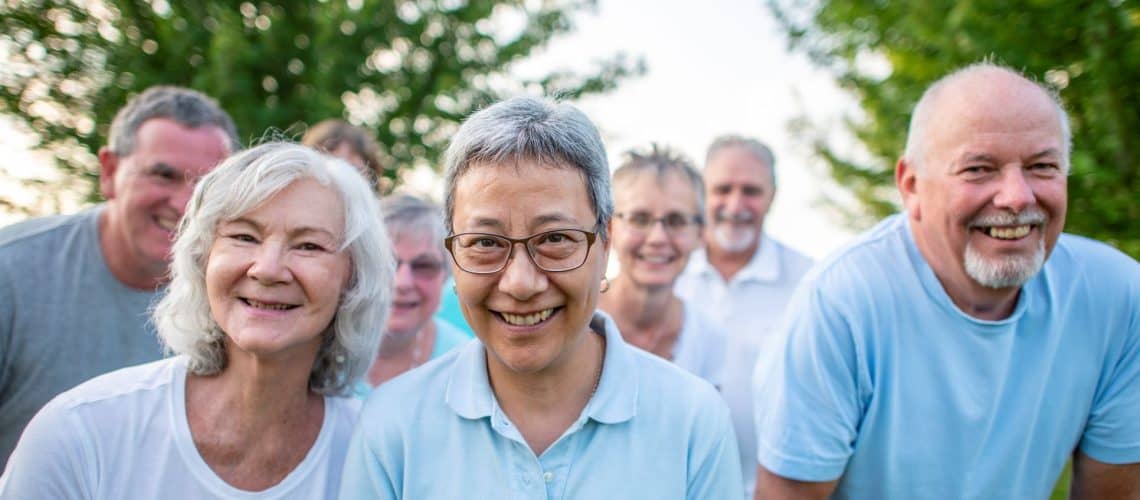One of the issues facing older people these days is the tendency for families to be widely dispersed. Recently, a client of Age Concern noted that her two daughters lived in Australia and her son was disabled and could not go anywhere easily. Since her husband died, she had been living at home, on her own, for over 25 years — but she still managed to maintain her social connections.
Apart from her cleaner and gardener, and regular visits from the District Nurse, she had a companion who took her shopping, another for going to the movies and outings, and a weekly visit from an accredited visitor from Age Concern. It just took a bit of organising, but she knew that it was for the better.
It is well recognised that there are considerable benefits in the development and maintenance of social connections no matter what your age. This becomes more important as you grow older and people pass away, move away, or there are changes in personal health and ability, different living arrangements, and other factors, all of which increase social distancing to the detriment of mental health and well-being.
A study at Stanford University in 2014 found that “strong social connection:
• leads to a 50% increased chance of longevity
• strengthens your immune system (research by Steve Cole shows that genes impacted by loneliness also code for immune function and inflammation)
• helps you recover from disease faster, and
• may even lengthen your life!”
“People who feel more connected to others have lower levels of anxiety and depression. Moreover, studies show they also have higher self-esteem, greater empathy for others, are more trusting and cooperative and, as a consequence, others are more open to trusting and cooperating with them. In other words, social connectedness generates a positive feedback loop of social, emotional, and physical well-being.”
Any move to help seniors stay connected with their community and family can benefit their mental health and wellbeing and could help them maintain their independence and mobility. Group activities can keep your brain vitalised.
So, if you are in that older cohort, what can you do about improving your social connections? As indicated above, social connections usually don’t come to you – you must make a bit of an effort.
Here are some techniques or tips to create more social connections and build a whole new network of friends and colleagues.
• Join community activities: you may already belong to an interest group like a gardening club, but there is no harm in widening that network. Think about U3A, or your local Probus/Friendship/Rebus club – all have a wide range of activities for people in the older age group.
• Volunteer: not only will it help your community, it will also provide you with opportunities to meet new friends and develop new interests. Several organisations (including Age Concern) provide visitor services matching volunteers with those who appreciate their company.
• Take a class: if you have the urge to learn, there are numerous adult and community education courses available throughout the Wellington Region for you to train your mind and meet new friends. If that seems too arduous, you could always just join a craft group and learn to draw, or cook or knit perhaps. Of course, if such a group does not exist in your area, you could always start one of your own and spread the word either online or on your community noticeboard.
• Join an exercise group: strength and balance groups for older people operate all over the Wellington Region. Age Concern runs more than 35 Steady As You Go classes where you can improve your core strength and balance and find like-minded friends. See the schedule on the back page of this issue.
• Join a walking group: there are groups which allow for different levels of fitness, so you don’t need to worry about dragging the chain, and sometimes you need to stop and smell the roses. Check out some of the Wellington walking groups here https://www.livingstreets.org.nz/node/1950. Alternatively, you could take up walking with a group of friends. But if you need some assistance walking, Age Concern Wellington Region has trained volunteer walking companions keen to support you.
This is just a short list of the possibilities for increasing your social connections that exist in and around Wellington. It is really a matter of taking the time and making a bit of an effort, but there are some amazing ways to meet other people and establish strong and interesting friendships. Socialising is good for you.
~ Mick Calder, Office Support Volunteer

